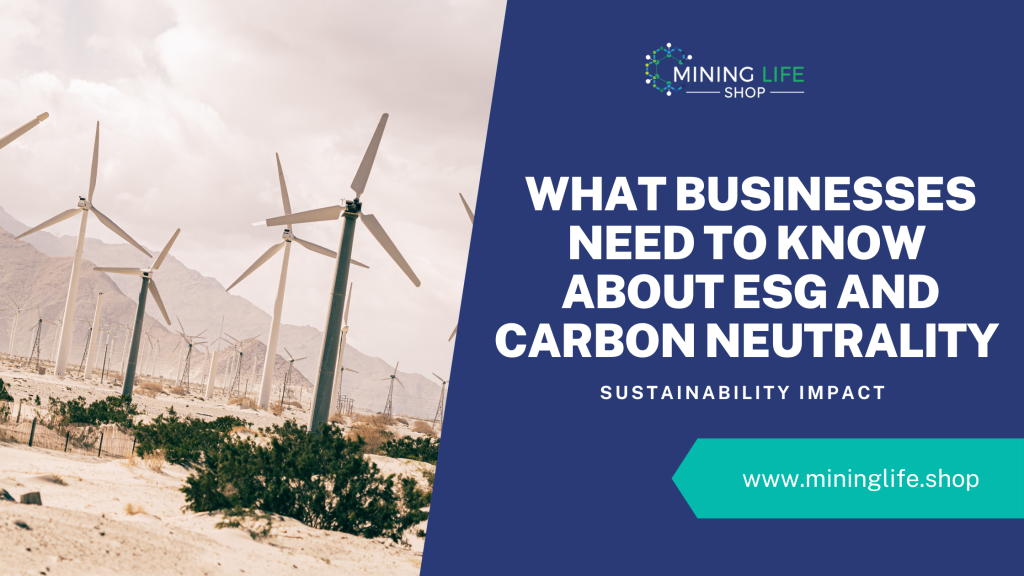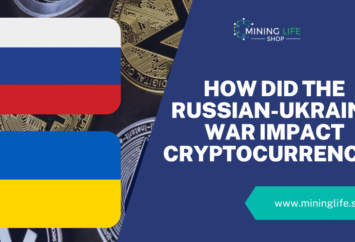To address the current environmental problems that we face, it is crucial that we establish what businesses need to know about ESG and carbon neutrality. This is because the global economy relies on the use of natural resources to keep running. We all need to understand that this type of economic activity has consequences.
The environmental consequences are what we call “externalities” or “sustainability impacts.” These consequences of too many economic activities are not always obvious but they are real, They have a negative impact on our society. Some actions can create more environmental impacts than others, such as mining for coal and extracting oil from the ground. That’s why businesses need to consider their carbon footprint and how it can be reduced or mitigated with ESG (Environmental, Social, and Governance) initiatives.
To learn more about what businesses need to know about ESG and carbon neutrality, read on!
Carbon Neutrality Basics
Many businesses are trying to reduce their carbon footprint and help the environment. One way to do this is by becoming a carbon-neutral company.
Carbon neutrality means that a business has reduced its emissions to the same level as natural emissions, which would occur without human interference. For example, if a business has 0% emissions, they have a “carbon neutral” status. This is because these companies have no impact on the environment at all.
In order to become carbon neutral, you will need to conduct a number of different activities which include, reducing your carbon dioxide (CO2) emissions and increasing your non-CO2 emissions. You can also accumulate your CO2 emissions in an offset fund, collaborate with other organizations that have a CO2 reduction goal, and request a carbon permit or invest in renewable energy.
The Difference Between Carbon Reduction and Carbon Neutrality
Carbon reduction is the reduction of carbon emissions and the mitigation of greenhouse gas emissions. With this process, businesses can make changes in their operations to reduce carbon emissions.
For example, a company might evaluate new ways to get power from renewable sources like solar and wind. This would be a move toward carbon reduction for that business.
Carbon neutrality is the point at which there are no net emissions of carbon dioxide into the atmosphere or into any other environment. This means that all greenhouse gas emissions have been offset by an equivalent amount of greenhouse gas-absorbing activities, such as reforestation and planting new trees on degraded land. Carbon neutrality is not reached by simply reducing carbon emissions or not emitting any remaining emissions; it requires additional offsets for some form of activity, such as reforestation and planting new trees on degraded land.
ESG and their Importance to Businesses
ESG is an umbrella term that has come to represent the interplay between three aspects of business: environmental, social, and governance. These types of initiatives are crucial for businesses because they understand that sustainability impacts are what we call externalities or externalities on society. They can impact our society in many ways, including the environment and human rights. ESG initiatives are important for companies because they can lead to lower operational costs, greater profits, and more sustainable growth.
Here are some of the benefits of ESG practices:
- Reduced carbon emissions
- Improved work environments
- Improved customer relationships
- Increased employee satisfaction
What businesses need to know about ESG is that they must be careful with how they implement these initiatives. Not all ESG activities are good for businesses. There will always be some negative impacts tied with them. This is why it’s important that you understand all the positive impacts first. And don’t forget that your customers care about ESG too!
Strategies for Carbon Neutrality and ESG Initiatives
On the surface, carbon neutrality may sound like a lofty goal, but it can actually be pretty simple to achieve. It’s not just about lowering your carbon footprint but also monitoring and controlling it. As an example, when you pack your lunch for work, think about how many miles that food has traveled before it gets to you. That journey alone contributes to your carbon footprint.
When possible, purchase local foods that will travel less mileage and avoid taking food from other countries or regions that have a high carbon footprint in order to reduce your own environmental impact.
Another strategy is to use renewable energy sources instead of fossil fuels. While residential solar panels are pricey at this point in time, there are plenty of ways for businesses to make cost-effective investments in renewables. Just take a look at what small changes can make a big difference in helping the environment!
About Mining Life Shop
Located at 7625 17th SW Vero Beach, Florida 32968, Mining Life Shop is your one-stop for anything cryptocurrency-related. We guarantee secure payment, efficient delivery, and fast support for our items. To know more about our services, visit our website or send an inquiry through our contact form. To connect directly with CEO Daniel Diaz, book an appointment now. Stay updated with Mining Life’s latest offerings by following our social media accounts.




